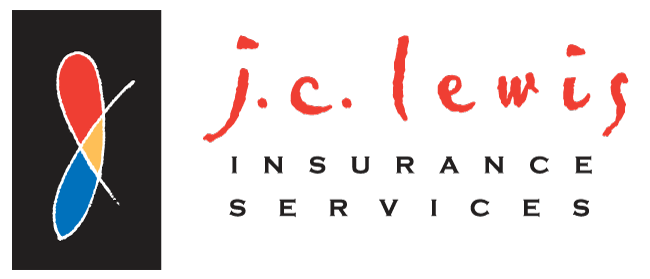Understanding business health insurance is pivotal for companies of all sizes, even small businesses. However, there are common misconceptions often cloud the health coverage landscape, which often leads to misguided decisions. Debunking these myths is crucial to ensure businesses make informed choices when it comes to supporting their employees’ health and well-being with quality healthcare coverage.
Navigating the world of business health insurance plans can feel like trying to decipher hieroglyphics in a dim light. And persistent myths only add to the confusion, adding the risk of potentially costly decisions for your small business.
With that in mind, let’s take a brief journey to dispel these five common myths, and empower you to make informed choices about employee benefits and your team’s healthcare.
Business Health Insurance is Too Expensive for Small Businesses
This myth is one that keeps resurfacing. Yes, some plans boast hefty price tags, but affordability is much closer than you think. Group buying power through associations, Small Business Health Options Program (SHOP), and chambers of commerce can unlock significant discounts. Think of it as an investment in your team’s well-being, leading to increased productivity and reduced absenteeism – a win-win for everyone.
The misconception that health insurance is unaffordable for small businesses stems from a lack of exploration. In reality, various plans offer flexibility and affordability tailored to small business needs. And with options like PPO insurance and HMO insurance group plans, Health Savings Accounts (HSAs), flexible spending accounts (FSAs), and tax credits for qualifying businesses, affordable coverage is within reach.
Only Large Corporations Benefit from Business Health Insurance
Contrary to popular belief, small and medium-sized businesses reap substantial advantages from offering health insurance. Competitive benefits packages enhance employee satisfaction, reduce absenteeism, and boost productivity. Moreover, with group rates and bargaining power through brokers, smaller businesses can access cost-effective plans.
Small businesses can still reap the rewards of health insurance such as:
- Attracting and retaining top talent
- Improved employee morale and productivity
- Reduced turnover costs
- Increased tax deductions
For small businesses, these advantages add up quickly. Think of it as fuel for your company’s growth engine, powered by a healthy and satisfied workforce.
Young and Healthy Teams Don’t Need Health Insurance
The idea that young, healthy teams can forgo health insurance overlooks unforeseen circumstances. Accidents or sudden illnesses can arise unexpectedly, leading to financial strain without adequate coverage. Furthermore, early employee enrollment ensures lower premiums, and consistent coverage promotes long-term health and well-being.
A solid health plan acts as a safety net, providing financial security and peace of mind. Moreover, building a culture of preventative care encourages healthy habits and early detection of potential issues, leading to better long-term health outcomes for your team. Remember, investing in wellness today translates to a healthier, happier, and more productive workforce tomorrow.
The Cheapest Plan is Always the Best Option
Choosing the cheapest plan based solely on cost neglects crucial factors. Comprehensive coverage, provider networks, and plan suitability for employees’ needs should be prioritized. Opting for a plan solely because it’s the least expensive might result in inadequate coverage or high out-of-pocket expenses.
The cheapest plan might ultimately leave you empty-handed so look beyond the costs and focus on the value proposition of a plan.
- Does it offer comprehensive coverage?
- A robust network of healthcare providers?
- Stellar customer service?
Remember, there are often hidden costs in “bare bones” health plans. Items such as surprise bills, limited coverage, and subpar services can quickly dissipate any initial cost savings. Invest in a plan that prioritizes quality and provides true peace of mind for your employees.
Offering Health Insurance Won’t Impact Employee Retention or Recruitment
Studies consistently show that health benefits are a top priority for job seekers, often trumping even salary in their decision-making process. It’s a powerful signal that you value your employees’ well-being and are committed to investing in their future. Employee benefits, especially health insurance, significantly influence workplace satisfaction.
Businesses offering comprehensive health coverage benefit in employee recruitment and employee retention. Competitive benefit packages signal an employer’s commitment to their employees’ well-being, fostering loyalty and retention.
Understanding the Reality of Business Health Insurance
Having exposed the reality of business health insurance behind these myths we’ve shown that it’s an investment in your team’s well-being. In addition, it is a driver of employee satisfaction and a competitive advantage in the marketplace.
Proper understanding allows business owners to make strategic decisions that benefit both their employees and the company. Seek accurate information, understand your unique needs, and consider factors like your industry, employee demographics, and desired level of coverage.
How to Choose the Right Health Insurance Plan for Your Business
To navigate the realm of health insurance effectively, businesses should assess their needs comprehensively. You decision rests on more than HMO vs. PPO, or PPO vs. HMO. Consider factors beyond cost, evaluate coverage options, review provider networks, and seek guidance from experienced brokers. In addition to comprehensive health insurance plans, consider the addition of dental insurance plans and vision insurance plans, as well.
The goal is to tailor your business health insurance plan to suit your workforce’s needs and to ensure maximum value.
Navigating the Maze: Finding the Perfect Business Health Insurance Plan for Your Company
This guide is a great starting point, but it is not the map. To reach your health insurance destination, consider conducting a self-assessment. Evaluate your budget, analyze your team’s demographics, and identify potential risks in your industry. Once you have a clear picture, consult with a qualified broker. Their expertise can guide you through the maze of options, helping you find the plan that fits your needs.
Remember, dispelling myths is the first step towards confident healthcare decisions. Empower yourself with knowledge, seek professional guidance, and choose a plan that protects your team and fuels your business’s success. Your employees’ health, your company’s future – it all rests on your informed choices.
Moving Beyond the Myths: Finding Trusted Help for Business Health Insurance
Seeking professional advice and carefully evaluating health coverage options can help to ensure businesses make the right choice and foster a healthier and more productive workforce. This brief guide aims to illuminate the truth behind common misconceptions so you can make informed decisions regarding your health insurance strategy.
Finding the perfect health insurance broker is an investment, not just in your employees’ well-being, but also in your company’s future. You can make informed decisions when you choose J.C. Lewis as your partner in the journey. With our unparalleled experience, comprehensive services, and dedication to transparency, we stand ready to be the broker who not only meets but exceeds your expectations.
Let us navigate the healthcare complexities with you, so you can focus on what matters most – growing your business and ensuring your team’s health and happiness. Don’t leave their health coverage to chance. Choose wisely, choose J.C. Lewis Insurance Services.
We invite you to call us at 866-745-9555 or email us at support@jclis.com today!






